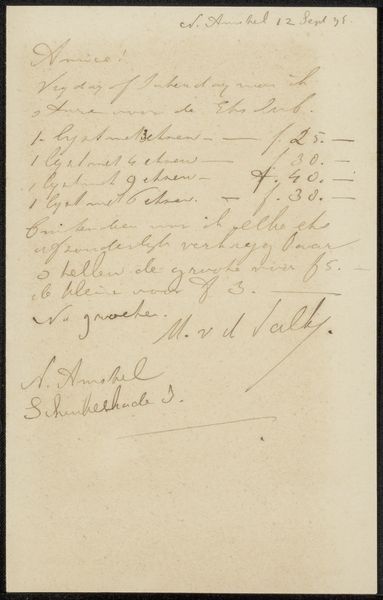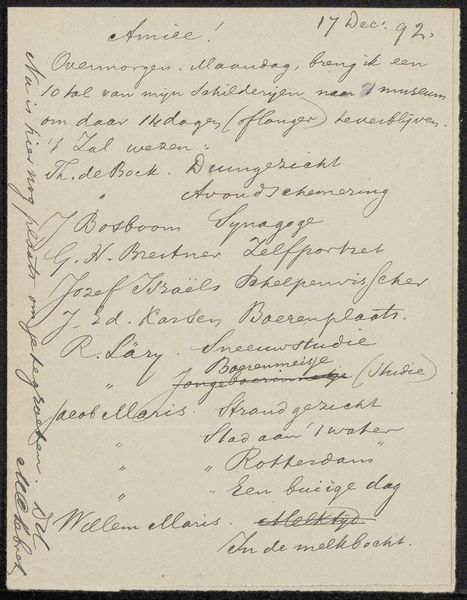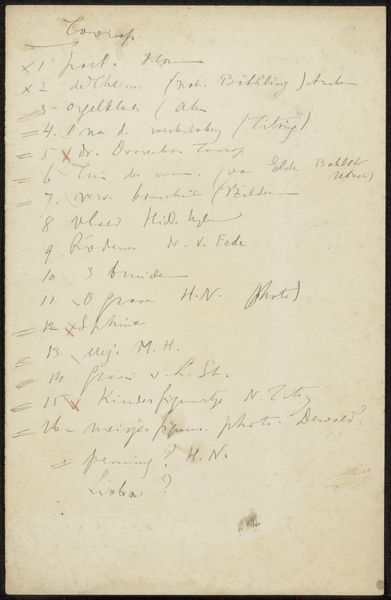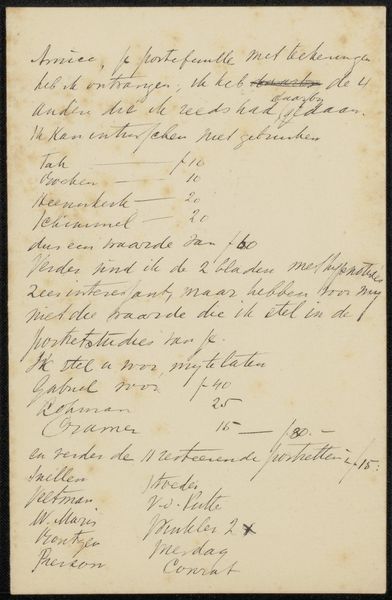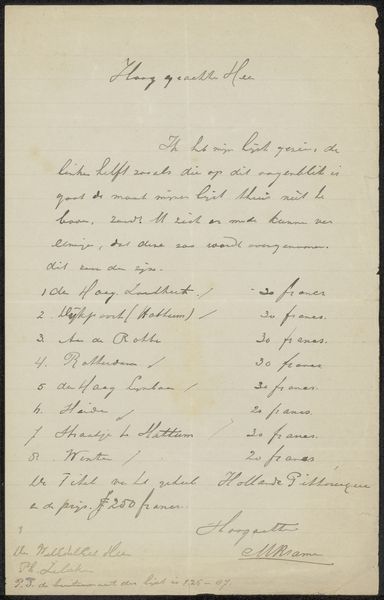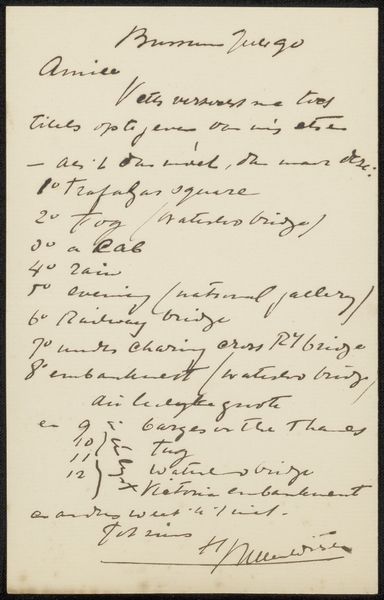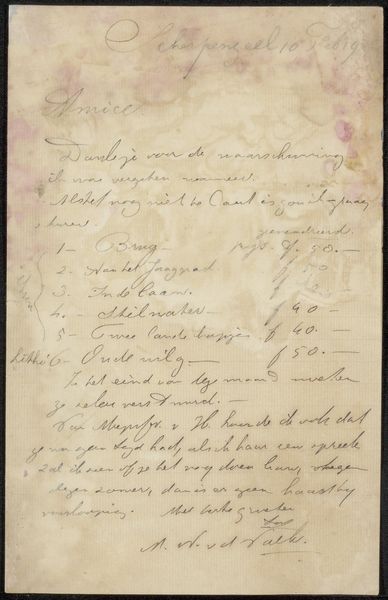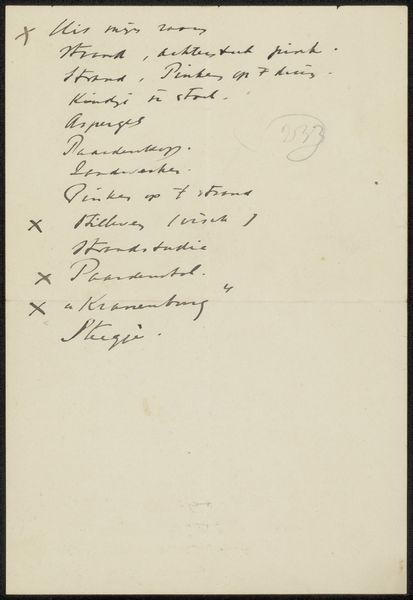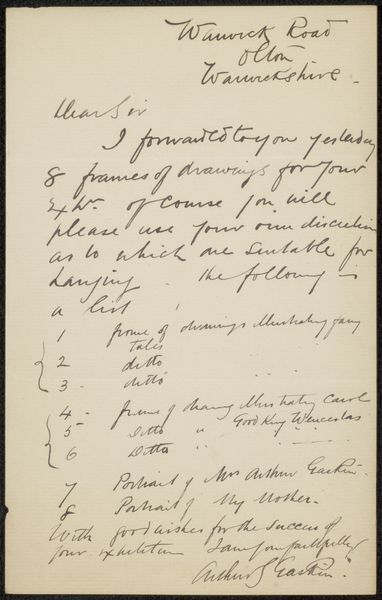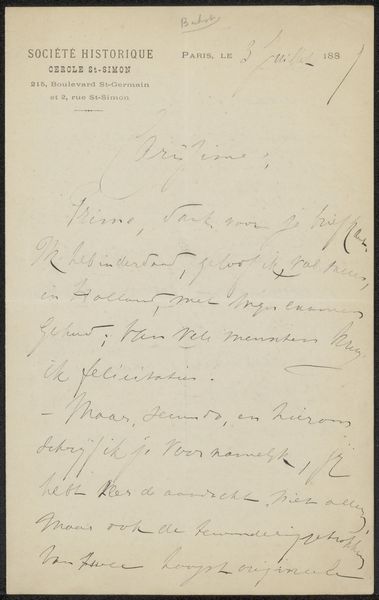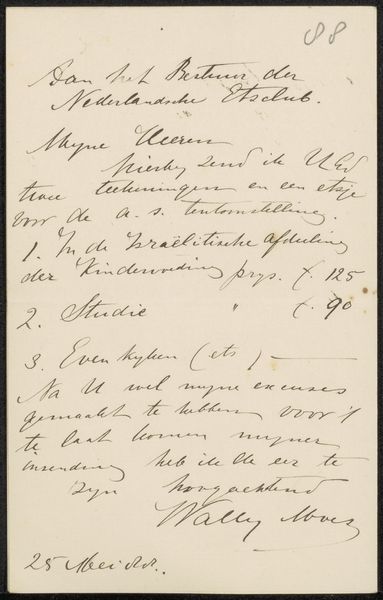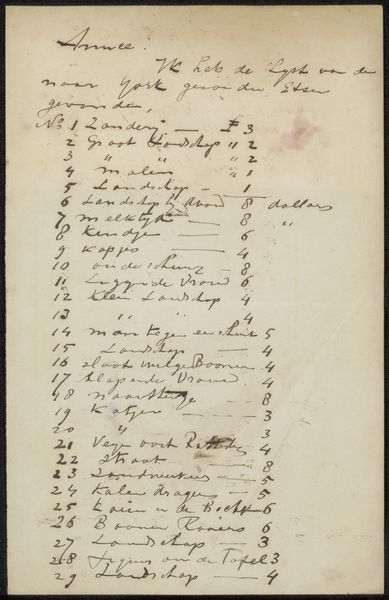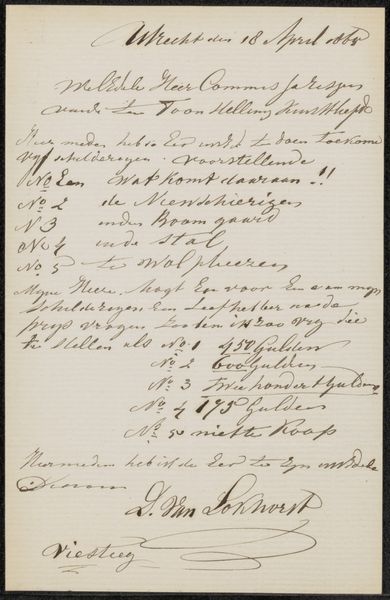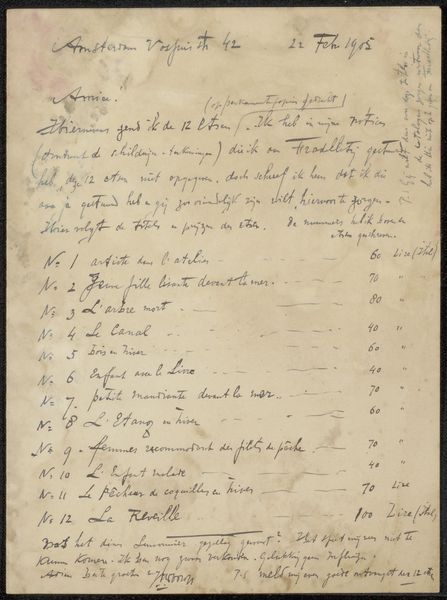
drawing, paper, ink
#
drawing
#
paper
#
ink
#
academic-art
#
calligraphy
Copyright: Rijks Museum: Open Domain
Editor: This is "Aantekening uit archief Philip Zilcken," a drawing using ink on paper by Barbara Elisabeth van Houten, created sometime between 1872 and 1930. It looks like a handwritten list... almost like shopping lists, but with artists’ names instead of groceries. How do you interpret this work? Curator: The seemingly simple list opens up questions about access and power within the art world of the late 19th century. We have to ask: Who was Philip Zilcken, and why was he compiling this list? Was this inventory, a record of works owned, or perhaps a wish list? The academic art style, which privileged certain subjects and techniques, was inherently exclusionary. This list, on the other hand, could give insight into the art Zilcken desired versus that which he had access to based on his socio-economic position, no? Editor: That’s an interesting way to think about it. It never occurred to me to see it as a record of something beyond just what was physically in front of her at the time. How does knowing Zilcken's profession shape our interpretation? Curator: Knowing that Zilcken was a Dutch artist, critic, and art dealer is key. He existed within networks of power – deciding whose work was validated and collected. Therefore, it becomes less about the artist's creative process and more about how societal structures like art dealing influence our reception and evaluation of art. This connects directly to contemporary conversations around representation and who controls the art historical narrative. Who has their name added to the list, and why? Editor: I see. So, beyond just seeing pretty handwriting, we’re actually looking at a piece about the politics of art and art collecting. It reframes something as straightforward as a shopping list into something powerful, unsettling even. Curator: Precisely! The personal is indeed political, extending even into something as seemingly innocuous as archival notes.
Comments
No comments
Be the first to comment and join the conversation on the ultimate creative platform.
